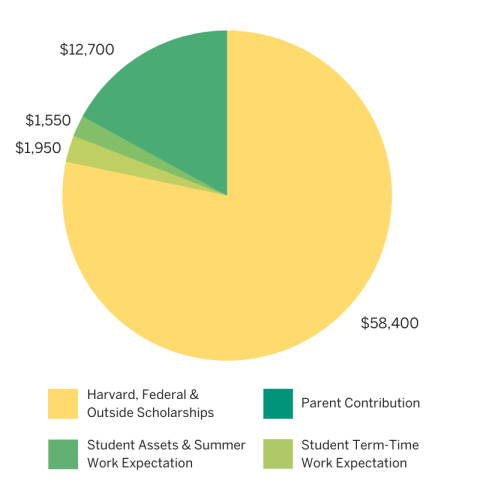Getting a Generous Financial Aid Package from Harvard Regardless of Merit
How Harvard Determines Financial Need
As one of the most prestigious universities in the world, Harvard is known to be extremely selective and competitive to gain admission. However, what many do not realize is that Harvard is also exceptionally generous when it comes to meeting the demonstrated financial need of their students through their robust need-based financial aid program. At Harvard, financial aid eligibility is determined solely based on a family’s financial circumstances rather than academic merit. If admitted to Harvard College, families below $150,000 in annual income can expect to contribute no more than 10% of their income, while those below $65,000 will likely contribute nothing at all. To evaluate financial need, Harvard requires admitted students and their families to submit detailed information about their income, assets, and expenses through the Free Application for Federal Student Aid (FAFSA) and the CSS Profile. Harvard then analyzes this financial data to determine the expected family contribution and the amount of need-based grant aid required to fill the gap between tuition costs and what the family can reasonably afford to pay.
Generous Grants Cover Nearly All Expenses
For the vast majority of students receiving need-based financial aid from Harvard, their aid packages cover nearly all of their education-related expenses without expectations to take on student loans. According to Harvard’s financial aid fact sheet, the average aid package in the 2022-23 academic year included $64,500 in grants from Harvard, federal programs, and outside scholarships to cover most of the $80,600 total budget. On top of grants, students may be expected to contribute $2,750 through part-time employment during the academic year. However, Harvard allows students to take out an equivalent amount in low-interest student loans if they do not wish to work during their studies. Either way, Harvard ensures all demonstrated financial need is fully met without excessive loan burdens.
External Scholarships Have Minimal Impact
While students are certainly encouraged to apply for external scholarships from outside organizations, any awards they receive have little impact on their overall financial aid from Harvard itself. This is because Harvard scholarships, which make up the bulk of need-based aid packages, adjust downward to offset any external funds exceeding the expected family contribution amount. In effect, additional merit or need-based scholarships from outside Harvard have minimal benefit, as Harvard simply uses them to fill their own aid packages rather than giving more funding to students. The goal remains providing just enough aid to cover full demonstrated need rather than rewarding academic performance.

Funding Continues Throughout Degree Completion
Students can rest assured that Harvard’s commitment to meeting full financial need lasts throughout their entire undergraduate education. Financial circumstances are re-evaluated each year, and aid packages adjust accordingly to continue filling any gaps. Funding also continues during study abroad semesters approved by Harvard. For graduate students pursuing competitive PhD programs at Harvard, funding situations are even more straightforward. The vast majority of PhD programs are fully funded, covering tuition, health insurance, and providing a reasonable living stipend for the duration of study. Master’s students have additional fellowship opportunities available from Harvard and outside sources to help finance their degrees.
No Merit Aid Available Regardless of Academic Achievements
While academic merit and accomplishments carry significant weight in the admissions process, they have no bearing on financial aid decisions at Harvard or other top private universities. As emphasized repeatedly, Harvard does not offer any merit-based scholarships tied to criteria like test scores, GPAs, talents, or awards. The sole criteria for determining financial need is family income and assets. A student with perfect academic stats requiring full aid due to financial hardship receives an identical aid package to another student with slightly lower stats but equal need. Top universities aim solely to help students from all economic backgrounds, not reward top performers.
Getting Generous Aid Boils Down to Demonstrated Need
In summary, whether a prospective student has a shot at a generously subsidized Harvard education comes down to one critical factor - demonstrating financial need through the financial aid application process. While admission is highly selective based on academic fit and talent, Harvard commits to removing cost as a barrier for any admitted student unable to pay without assistance.
Rather than fixating on academic accomplishments to win merit scholarships, students would be wise to focus their energy on presenting the strongest possible application to the school of their choice. And for those fortunate enough to gain admission to Harvard, rest assured that an affordable education is virtually guaranteed through the institution’s magnanimous need-based aid program.
